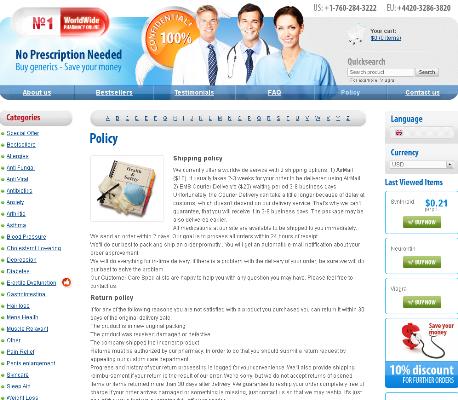| Royal City Drugs |
To Visit Online Pharmacy Click HERE ↓
Ventolin Inhaler Side Effects: What to Expect
Common Immediate Reactions after Using Ventolin
After taking a puff of Ventolin, many users notice their breathing eases quickly, bringing almost immediate relief. This rapid action, while a welcome benefit, can sometimes come with sensations that catch people by surprise. It’s not uncommon to feel a slight tremor in your hands or experience a racing heartbeat shortly after using the inhaler.
Some people might sense a mild jitteriness or restlessness, especially if they’re new to the medication or using higher doses. These effects typically fade within minutes to an hour and are generally harmless.
For most, these side effects are manageable and lessen with continued use as the body adapts. Understanding what’s happening can make these initial experiences less concerning.
| Immediate Reaction | How Long It Lasts |
|---|---|
| Tremor (shaky hands) | Minutes to 1 hour |
| Increased heart rate | Minutes to 1 hour |
| Restlessness/jitteriness | Minutes to 1 hour |
Unpacking Mild and Temporary Side Effects

After using the Ventolin inhaler, some individuals may notice symptoms like a slight tremor or jitteriness in their hands. These sensations might feel surprising at first, but they are generally short-lived and often diminish as your body becomes accustomed to the medication. Many users also report feeling their heart beat a bit faster, which can be unsettling but typically fades within a few minutes.
A dry mouth, mild headache, or throat irritation may also occur in the hours following an inhalation. Fortunately, these effects are usually manageable and resolve on their own. Being aware of these responses can help users feel more at ease during their treatment.
Rare but Serious Side Effects to Watch for
While most people tolerate the ventolin inhaler well, occasional users may encounter unexpected symptoms that require prompt attention. Issues like chest pain, rapid heartbeat, or severe allergic reactions such as swelling of the face, lips, or throat can signal a serious concern.
It’s important not to dismiss signs like persistent dizziness or difficulty breathing. These side effects, although uncommon, indicate that your body is reacting strongly. If you notice any of these warning signs, seek immediate medical advice to ensure your safety.
How Ventolin Interacts with Other Medicines

Using a Ventolin inhaler alongside other medications can sometimes lead to unexpected interactions. For example, medicines like beta-blockers or certain antidepressants may reduce the effectiveness of Ventolin, making it harder to control breathing symptoms. Some diuretics can also increase the risk of low potassium levels when combined with Ventolin use. Always let your healthcare provider know about every medication you’re taking—including prescriptions, over-the-counter drugs, and herbal supplements—to help avoid potential complications and keep your asthma treatment as safe as possible.
Tips to Minimize or Manage Side Effects
Using a Ventolin inhaler effectively can help you avoid unnecessary discomfort. Always follow your doctor’s instructions on dosage and frequency—more isn’t always better and can actually increase side effects. Try to rinse your mouth after each use, as this simple habit can reduce the risk of throat irritation.
Staying hydrated can also make a noticeable difference, especially if you experience a dry mouth or throat. If you notice jitteriness or an increased heartbeat, pause and rest in a comfortable spot until symptoms pass. Monitoring your reactions and keeping a diary can help you and your healthcare provider identify any patterns.
| Strategy | Benefit |
|---|---|
| Rinse mouth after use | Reduces throat irritation |
| Follow prescribed dose | Limits side effect risks |
| Stay hydrated | Relieves dry mouth |
When to Seek Medical Attention Immediately
Picture this: after using your Ventolin inhaler, you notice your breathing isn’t improving—or perhaps you feel your heartbeat racing much faster than usual. While mild side effects are common, symptoms like chest pain, severe shortness of breath, or swelling of your face, lips, or tongue are clear red flags. These are not situations to simply “wait and see.” Immediate medical attention can be life-saving, especially if you experience difficulty speaking, wheezing that worsens, or a feeling of faintness.
Pay close attention to warning signs that may develop quickly after using Ventolin. If you suddenly develop a rash, hives, or experience confusion or muscle cramps, don’t hesitate—these may represent severe allergic reactions or dangerous shifts in electrolytes. Time is critical in these scenarios.
Trust your intuition if something feels drastically wrong or unlike any previous experience with your inhaler. Ventolin is generally safe, but unusual, severe, or rapidly worsening reactions always warrant a swift response. When in doubt, contacting emergency healthcare services is the safest move.






Email Us
Fill out all the fields below and press submit, a rep will contact you as soon as possible.

